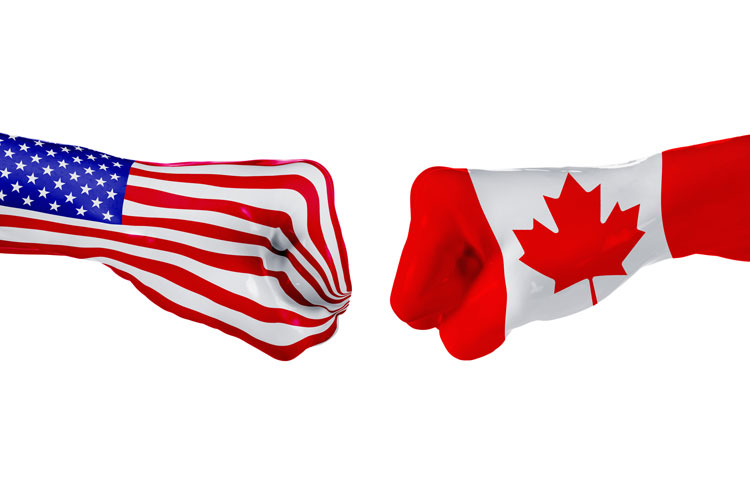
Trade has been dominating the headlines.
And for good reason, as U.S. President Trump has ordered that tariffs be set into place with a number of longtime allies that have been, up until now, valued trading partners.
These U.S. tariffs, of course, caused counter tariffs on U.S. goods.
Dairy is now caught in the middle, as the U.S. has become a global dairy exporter.
When it comes to U.S.-Canada relations, the dairy trade front has been rolling to a boil for over a year. Now that President Trump has set tariffs on steel and aluminum sales from Canada to the U.S., the matter has rolled to a full-fledged pot of boiling water between the two nations.
A middle ground for dairy?
Canadians staunchly defend their supply management system for dairy. The solid returns for producing milk and managed flow of milk are major reasons in favor of Canada’s quota system. So, too, is the fact that quota has become the largest asset for nearly every dairy farmer.
For the most part, those with U.S. dairy interests have been willing to leave Canada’s supply management system alone. That’s until Canada launched its newly created Class 7 milk category for milk protein isolates and skim milk powder and hitched it to world prices.
Class 7 is a lighting rod
“Frankly, I don’t know how we can go forward if Canada insists on a Class 7 as part of their program, and hopefully, we can make that clear to them,” said USDA Secretary Sonny Perdue following a mid-June trip to Canada.
“The U.S. ambition is not to dictate to Canada to do away with its supply management system . . . we do think that we have a request that the supply be managed so that we do not overproduce and depress world milk solid prices in that way,” continued Perdue in a phone interview later reported by Kelvin Heppner in his article “Perdue targets new Canadian dairy class during meeting at the MacAulay farm in PEI.”
“I understand the frustration of the U.S. side, and quite frankly, I think they have every reason to be upset,” said Lino Saputo Jr., CEO of Saputo Inc., in an article written by Jen Skerritt for Bloomberg.
“There has to be some give,” Saputo said. “The Canadian dairy farmers and the Canadian dairy industry cannot put their head in the ground thinking we’ll come out of this unchanged,” he said in the Bloomberg article “Canada’s biggest cheesemaker says Trump has a point on dairy policy.”
Can the U.S. and Canada find middle ground?
We must ask whether the terse rhetoric will continue between both countries or will practical diplomacy eventually win the day?
The Editorial Comment “Can the U.S. and Canada find middle ground?” that appeared in the May 25 issue of Hoard’s Dairyman began to address this Class 7 issue well before the recent June headlines. In our opinion, it’s the way forward to resolve this trade fight among longtime allies.









